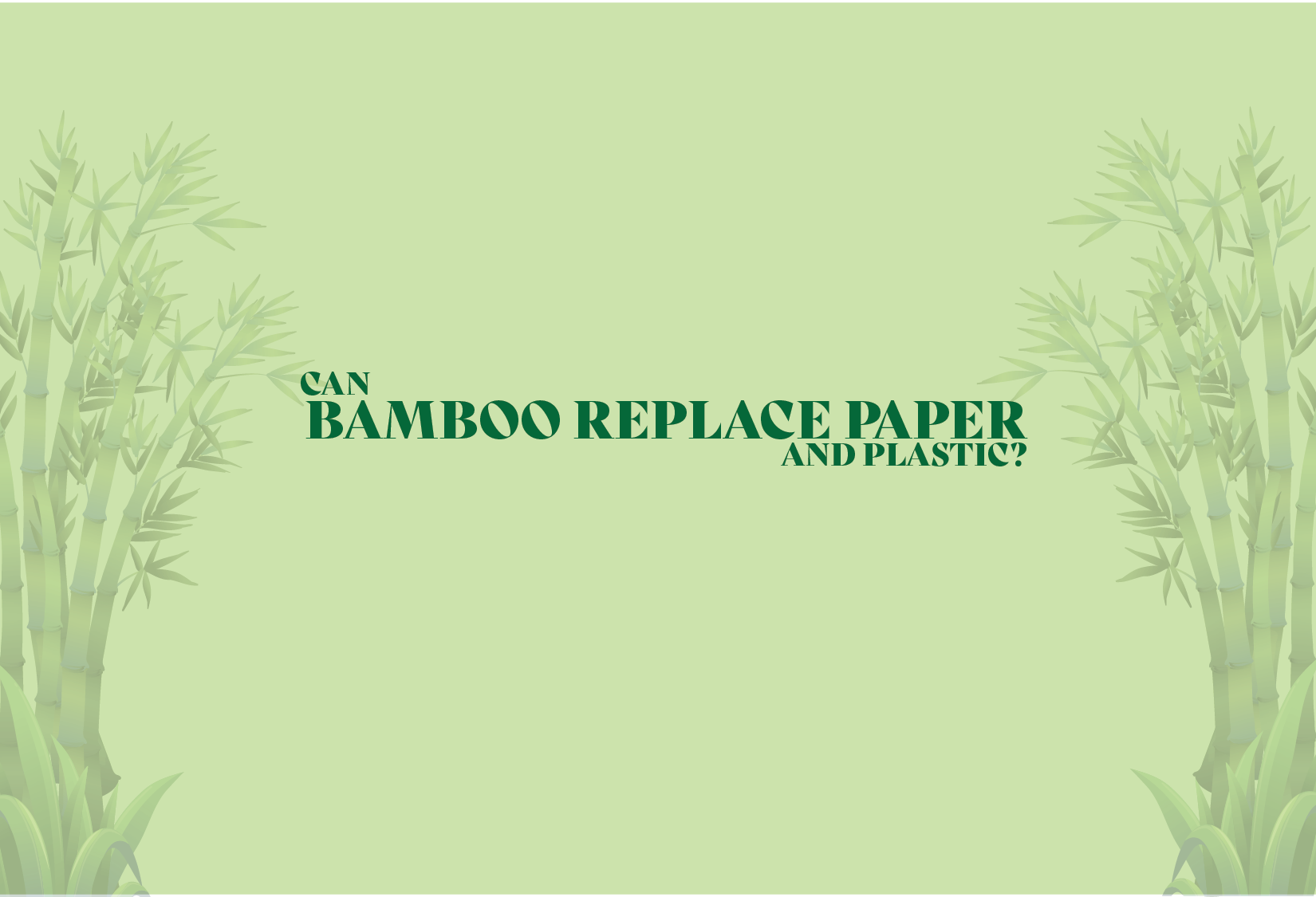
Article by
There is an unprecedented need for sustainable solutions in a world facing environmental concerns. Fast-growing and multipurpose, bamboo has become a green alternative for everything from personal care products to household goods. However, concerns regarding bamboo goods' true environmental impact and how they stack up against their more conventional paper and plastic equivalents emerge as consumers increasingly choose bamboo items as an eco-friendly alternative.
Bamboo has been used historically for building, papermaking, and even as a food source. These days, it's being turned into a vast range of throwaway products including toilet paper, straws, and cutlery. Bamboo's fast growth rate—some species can sprout more than a foot per day—and ability to replace products that require a lot of resources, like plastic and paper, are what make it so alluring.
Taiwanese businesses are spearheading the innovation of bamboo products. Utilising its adaptability and cutting-edge production methods, bamboo is being transformed into a biodegradable and compostable substitute for traditional plastic. Through this procedure, bamboo is transformed into a bioadhesive substance that has the same qualities as plastic but doesn't have the same negative effects on the environment. These bamboo-based goods, which range from lunchboxes to straws, present a viable way to reduce the pollution caused by plastic.
Beyond the fact that they decompose, bamboo products also have other positive environmental effects. Bamboo forests are important sources of carbon and home to a variety of ecosystems, especially in areas like China and Taiwan. Bamboo paper production is more environmentally friendly since it uses less resources and produces fewer emissions than typical paper products made from trees.
The promise of bamboo-based paper products is best demonstrated by Real Paper, a company that sources bamboo from forests that are maintained responsibly. In place of traditional toilet paper, they provide customers with an eco-friendly option by using bamboo pulp instead of tree pulp. Bamboo-based products like Real Paper appeal to environmentally aware consumers who are willing to pay a premium for sustainability, albeit being slightly more expensive than traditional solutions.
Despite being environmentally benign, bamboo goods have trouble becoming widely used. For many consumers, the cost is still a barrier because bamboo substitutes are frequently more expensive than their counterparts made of plastic and paper. Moreover, by holding businesses liable for recycling and trash management, regulatory frameworks like extended producer responsibility (EPR) legislation may encourage businesses to switch to more sustainable materials.
The need to fight climate change and raise public understanding of environmental issues will make bamboo products more popular. Around the world, governments and organisations are looking into ways to encourage sustainable alternatives and lessen dependency on non-biodegradable materials and fossil fuels. Research and innovation are propelling improvements in bamboo processing methods and product creation as bamboo becomes more and more popular as a workable alternative.
The creation of composite materials for manufacturing and construction based on bamboo is one area of emphasis. Bamboo is a great resource for construction materials, furnishings, and even automobile components because of its strength-to-weight ratio and durability. Through using bamboo's inherent qualities and merging it with other environmentally friendly materials, scientists are leading the way in the creation of the upcoming wave of green products.
Additionally, programmes like agricultural and reforestation are increasing the cultivation of bamboo, bringing economic opportunities to rural populations and repairing degraded land. Because of its adaptability, bamboo may be used for a variety of purposes, from ancient handicrafts to contemporary industrial applications, which promotes sustainable livelihoods and lessens the strain on natural forests.
Nevertheless, increasing bamboo output and getting past market obstacles still present difficulties. The widespread use of bamboo goods is hampered by infrastructure constraints, such as those related to transportation and processing networks. Furthermore, consumer education and awareness initiatives are required to debunk myths and highlight bamboo's superior environmental qualities over conventional materials.
To fully realise bamboo's potential as a sustainable resource, cooperation between governments, business leaders, and civil society is imperative in the face of these obstacles. Policies that encourage the growth of bamboo and encourage research and development may foster innovation and reduce production costs, increasing the accessibility of bamboo goods to a global consumer base.
Bamboo's contribution to the shift to a circular economy is becoming more and more important as the demand for environmentally friendly alternatives increases globally. We can create a more sustainable future once bamboo products at a time by utilising nature's replenishable resources and adopting creative solutions.
In a nutshell, bamboo goods are a positive step in the direction of a more sustainable future. Their quick growth, little impact on the environment, and biodegradability make them appealing substitutes for conventional paper and plastics. However, in order to overcome financial obstacles and guarantee bamboo's sustainability as a green solution over the long run, industry players, government agencies, and consumers must work together to promote broad adoption. As the demand for eco-friendly alternatives continues to grow, bamboo stands poised to play a pivotal role in shaping a more sustainable world.
 Monthly "Azeem English Magazine", launched in 2000, records the information about diverse fields like mental health, literature, research, science, and art. The magazine's objective is to impart social, cultural, and literary values to society.
Monthly "Azeem English Magazine", launched in 2000, records the information about diverse fields like mental health, literature, research, science, and art. The magazine's objective is to impart social, cultural, and literary values to society.
+92 51 88 93 092
First Floor, RAS Arcade, Eidhi Market, Street#124, G-13/4, Islamabad, Pakistan, 44000.